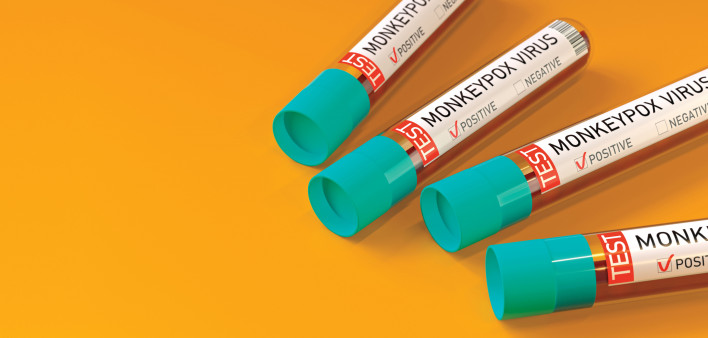Mpox (formerly known as monkeypox) has declined dramatically since the summer of 2022, but it still poses a threat to vulnerable individuals, including those with untreated HIV. While HIV-positive people with an undetectable viral load and an adequate CD4 T-cell count do not fare worse than their HIV-negative peers, it’s a different story for those with advanced immune suppression.
Chloe Orkin, MD, of Queen Mary University of London, and colleagues conducted an analysis of nearly 400 HIV-positive people with mpox in 19 countries who had a CD4 count below 350. Although about 90% were previously diagnosed with HIV, just 60% were on antiretroviral treatment, and only half had an undetectable viral load.
Many patients had severe mpox disease, including extensive lesions, tissue death, lung involvement and eye and brain manifestations. More than a quarter of people with a CD4 count below 100 died, but viral suppression also played a role: The mortality rate was 7% for those with viral suppression but 30% for those with a high viral load. The good news is that no one with a CD4 count above 200 died, suggesting that antiretroviral treatment can prevent severe mpox outcomes.
Mpox is “very starkly different” for HIV-positive people with advanced immune suppression, Orkin says. The researchers argue that mpox should be considered an AIDS-defining opportunistic infection. They recommend that all people with mpox should be tested for HIV, advise clinicians to be alert for mpox progression in people known to be HIV positive and urge that those with a low CD4 count should be prioritized for mpox vaccines and antiviral treatment.







Comments
Comments